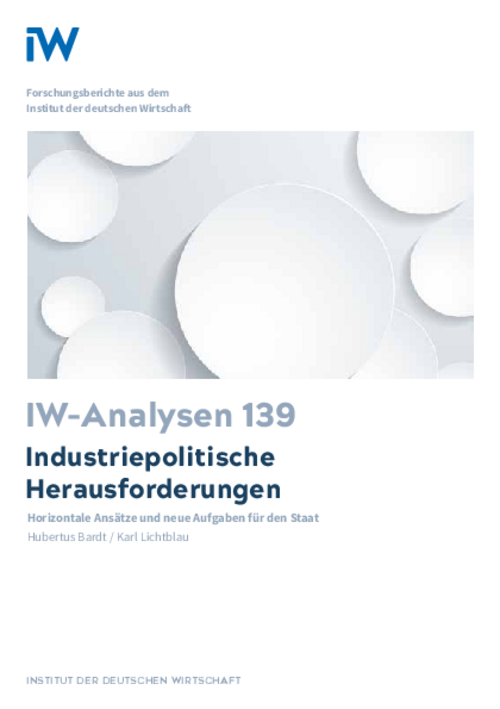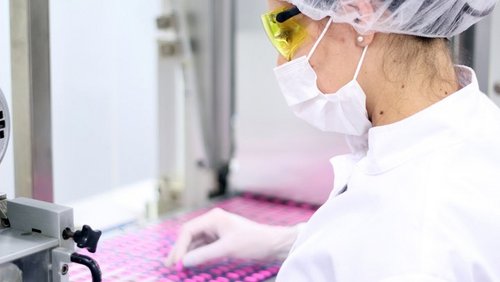Although manufacturing industry forms the principal economic basis for the country’s prosperity and employment, industrial policy does not have a good reputation in Germany. This is because the term is usually used to mean selective state intervention in individual markets and sectors, or on behalf of individual companies, rather than the creation of a general regulatory framework in which industry can flourish.

Industrial Policy in Germany
IW-Analyse

Although manufacturing industry forms the principal economic basis for the country’s prosperity and employment, industrial policy does not have a good reputation in Germany. This is because the term is usually used to mean selective state intervention in individual markets and sectors, or on behalf of individual companies, rather than the creation of a general regulatory framework in which industry can flourish.
For Germany, where manufacturing accounts for a high proportion both of employment and of the economy’s total value added, developing manufacturing is crucial for future prosperity. Economic policymakers must therefore explicitly consider how conditions conducive to industrial growth can be created. This will involve not only horizontal approaches that set the same legal and institutional framework for all companies; vertical measures that are selective and only affect certain branches of manufacturing can also be effective. The present IW Analysis proceeds in three steps: First, the importance of manufacturing industry is highlighted, the structural changes it has experienced since the 1970s are outlined and the so-called German business model is described. Then the different phases of industrial policy since 1970 are detailed and current challenges addressed. The analysis concludes with proposals for industrial policy in Germany and Europe.

Hubertus Bardt / Karl Lichtblau: Industriepolitische Herausforderungen – Horizontale Ansätze und neue Aufgaben für den Staat
IW-Analyse

More on the topic

Pharmaceutical industry: Increasing pressure on the labor market
The shortage of skilled workers poses significant challenges for pharmaceutical companies in Germany and is expected to become increasingly problematic in the context of demographic changes. Concerning Germany's positioning in the international competition ...
IW
Industrial policy at the turn of the times
The current debate on industrial policy vacillates between the extreme positions of an orthodoxy of rejecting state action and a naive belief in the state's ability to control structural change.
IW